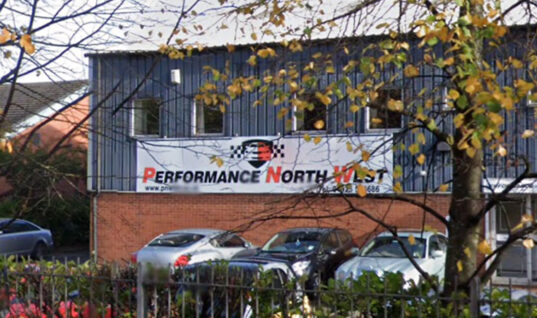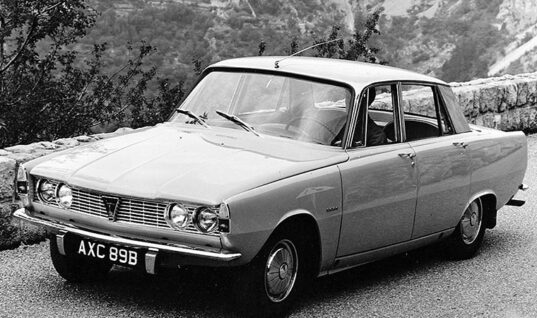The call comes after the IMI received warnings for the sector, should EU Block Exemption regulations be lost if Britain leaves the EU.
The cost of car servicing and repairs could rise by 30 per cent, and up to half of the estimated 40,000 independent service and repair businesses could go ‘bust’ if Britain votes to leave the EU, a leading independent academic has advised the IMI.
Professor Jim Saker of the School of Business and Economics at Loughborough has said many of the 500,000 jobs and businesses in the sector it represents could be at risk after Brexit.![]()
‘A catastrophic effect on the independent sector’
The sector that already faces challenges from new technology in modern vehicles could lose access to vital information from the leading car companies that EU Regulations provide, with the potential to have a catastrophic effect on the independent sector in Britain.
According to Saker, the main issue comes from the possible loss of the EU Block Exemption regulations.
Without the ‘Right to Repair’ scheme, Saker believes that manufacturers will not share information on new cars if they don’t have to, making it impossible for independent garages to maintain their businesses.
Professor Jim Saker said: “The manufacturers could potentially hold all the cards going forward.
“In the absence of the EU Block Exemption Regulation, or something very similar, they could effectively shut the independents out and many of those businesses would ultimately fold.
“Warranty servicing would be kept within the franchised dealers, competition would be forced out of the market and prices for drivers would inevitably rise.![]()
Half of independents ‘could go bust’
“It is easy to see that with loss of the EU Block Exemption Regulations, up to half of the independent garages in Britain could go bust.
“This would result in the loss of around 50,000 skilled jobs and with the resulting reduction in competition I would expect to see a 30 per cent increase in prices.”
Based on Professor Saker’s predictions, the IMI estimates that the price increase for servicing alone would be an average of £100 per year for every driver.
But there would also be additional cost for repairs and a knock on rise in insurance premiums.
The IMI has taken a neutral position on the referendum because the opinions of industry people appear to have been split down the middle.![]()
Industry reassurance
Nevertheless, the advice from Professor Saker has prompted the Institute to seek some answers and assurances for the industry that have been absent from the campaign to date.
IMI CEO Steve Nash said: “Professor Saker’s Paper is certainly thought provoking and whilst it might outline a worst case scenario it also highlights a key issue on which we have as yet no definitive answers from those who want us to leave Europe.
“We therefore feel it is necessary to fuel the debate and hopefully get some answers for people who work in the retail motor industry ahead of the referendum.
“At the very least it warrants a response from the leave campaign to tell our industry how they would mitigate against what looks like a Doomsday scenario for thousands of businesses and a raw deal for millions of drivers after Brexit.”
For more information about the IMI, click ‘more details’ below.
Are you decided on the referendum yet? Do you think EU Block Exemption regulations would be lost if we were to vote for Brexit? Share you concerns in the comments below.









Keith Simpson
There are bigger issues than block exemption if we vote to leave on the 23rd. The way things are going in the motor trade today eg Diop ect for one. I doubt very much that if we vote to stay will make any difference. Or is this just another case of scaremongering?
Keith Simpson
There are bigger issues than block exemption if we vote to leave on the 23rd. The way things are going in the motor trade today eg Diop ect for one. I doubt very much that if we vote to stay will make any difference. Or is this just another case of scaremongering?
Neil Pattemore
Although I have not seen Prof Saker’s report, he misses two critical points. BER will end on 31st May 2023 and the key legislation (which is currently under review) is the Euro 5 type approval Regulation which provides the same level of access to repair and maintenance information for independent operators as vehicle manufacturers provide to their authorised dealers. As this is type approval, it seems unlikely that this would change if we stayed or left and equally the recent Frost & Sullivan Aftermarket report shows that the UK has one of the most vibrant and successful Aftermarket sectors in Europe and consequently the UK Government would probably wish this to continue to support it to ensure continued affordable mobility.
Neil Pattemore
Although I have not seen Prof Saker’s report, he misses two critical points. BER will end on 31st May 2023 and the key legislation (which is currently under review) is the Euro 5 type approval Regulation which provides the same level of access to repair and maintenance information for independent operators as vehicle manufacturers provide to their authorised dealers. As this is type approval, it seems unlikely that this would change if we stayed or left and equally the recent Frost & Sullivan Aftermarket report shows that the UK has one of the most vibrant and successful Aftermarket sectors in Europe and consequently the UK Government would probably wish this to continue to support it to ensure continued affordable mobility.
Brian Spratt
Norway, not an EU member, enacted its own version of Block Exemption Regulations to protect the aftermarket in exactly the same way as states within the EU. If the Uk exits the EU it will be allowed to pass its own laws, and it can choose which EU rules are suitable and which are not. And, as Neil Pattemore points out, type approval regulations have more relevance to the long term aftermarket future.
Brian Spratt
Norway, not an EU member, enacted its own version of Block Exemption Regulations to protect the aftermarket in exactly the same way as states within the EU. If the Uk exits the EU it will be allowed to pass its own laws, and it can choose which EU rules are suitable and which are not. And, as Neil Pattemore points out, type approval regulations have more relevance to the long term aftermarket future.